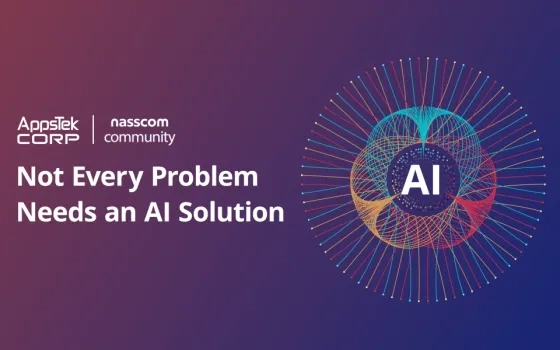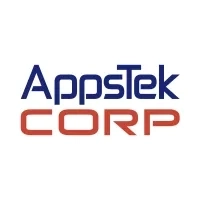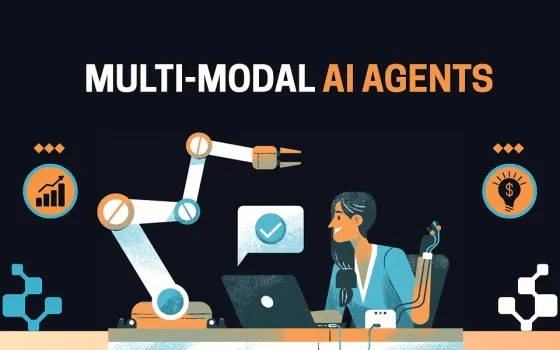Are you adopting AI because it’s the future or because everyone else is?
With AI everywhere in the headlines, businesses are pressured to jump in and ask, “How can we use AI?” without asking, “Why should we use AI?”. AI is undoubtedly exciting, but the hype often leads organizations to implement it without asking whether it’s the right solution—or even if they’re ready for it.
A Deloitte survey found that 26% of companies tested "agentic AI" to perform tasks autonomously, but regulatory uncertainties hinder broader implementation. According to Gartner, Inc., at least 30% of generative AI (GenAI) projects will be abandoned after proof of concept by the end of 2025 due to poor data quality, inadequate risk controls, escalating costs, or unclear business value.
The number shouldn't come as a surprise. AI adoption requires examining organizational processes from a transformation perspective; not carefully assessing readiness can lead to wasted resources.
AI Landscape: Know Your Options
If there has been a space with rapid advancements, it’s AI. Early AI research in the 1950s focused on symbolic reasoning and rule-based systems. The 1980s saw expert systems that mimicked human decision-making. Machine learning emerged in the 1990s and 2000s, enabling AI to learn from data rather than relying on pre-programmed rules. The 2010s brought deep learning and neural networks, leading to image recognition, natural language processing, and automation breakthroughs.
Generative AI and autonomous agents have broadened the scope of AI applications, allowing for significant impacts across various sectors. Recognizing that AI is not a one-size-fits-all solution enables business stakeholders to evaluate it based on suitability, tailoring the technology to meet the business's specific needs instead of simply adopting it for its own sake.
Traditional AI
This is where AI began—pre-trained models that perform specific, rule-based tasks like fraud detection or image classification. It's highly reliable and works efficiently for repetitive, structured tasks. However, it has limited adaptability to complex, unpredictable problems.
When to Use Traditional AI
Not all AI applications need to be complex. Traditional AI is often the best choice for tasks with clear, structured data and defined objectives. It’s reliable, cost-effective, and can provide immediate benefits:
- Predictive Analytics: Traditional AI can forecast customer behavior or optimize inventory, offering tangible benefits for businesses with structured data.
- Image Recognition: AI solutions like ImageVision.ai can automatically detect defects or inconsistencies in manufacturing processes, ensuring quality control.
- Natural Language Processing (NLP): AI can analyze customer feedback, gauge sentiment, and extract actionable insights from structured text data.
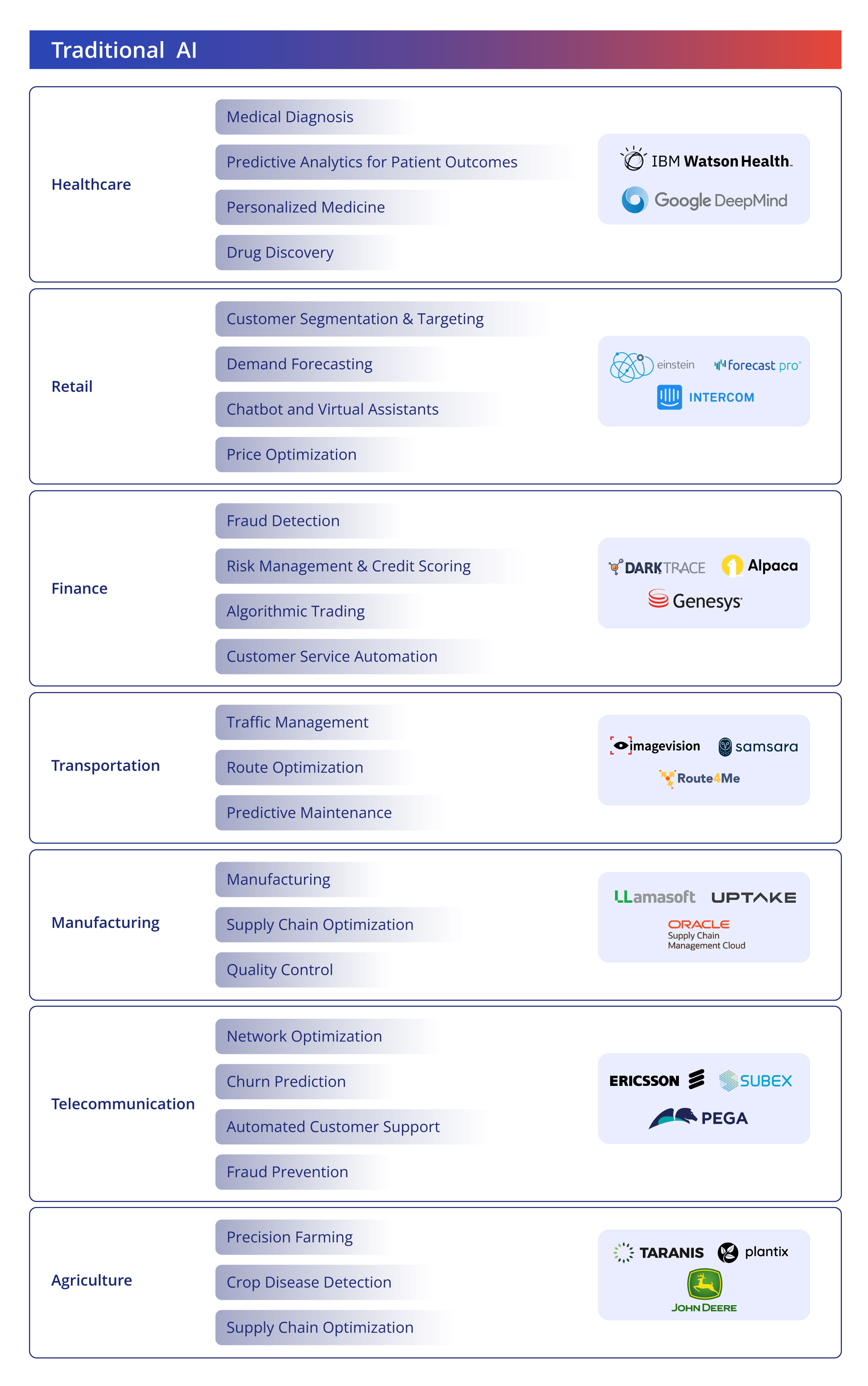
Risks to Consider
While Traditional AI is efficient for repetitive, rule-based tasks, it's important to be mindful of its limitations:
- Limited Flexibility: It struggles with complex, dynamic problems that require adaptive learning.
- Dependency on Structured Data: Works best with clearly defined, structured datasets, limiting its use in unstructured or ambiguous scenarios.
- Scalability Constraints: Traditional AI models may need significant re-training or updates when faced with evolving data patterns or unexpected changes.
Generative AI (GenAI)
GenAI is the new frontier. These systems can create content—text, images, or even code—based on patterns learned from massive datasets. But with creativity come challenges: high resource requirements/high computational needs, the risk of inaccuracies, and the need for constant governance.
When to Use Generative AI
This AI is perfect for creative processes like marketing, storytelling, and product innovation:
- Content Creation: GenAI can save time and inspire fresh ideas, whether generating marketing copy, designing products, or ideating new features.
- Personalization at Scale: GenAI can help scale personalized experiences, such as offering tailored product recommendations or crafting individualized email campaigns.
- Enhancing User Interactions: From chatbots to interactive experiences, GenAI can elevate how customers interact with your brand.
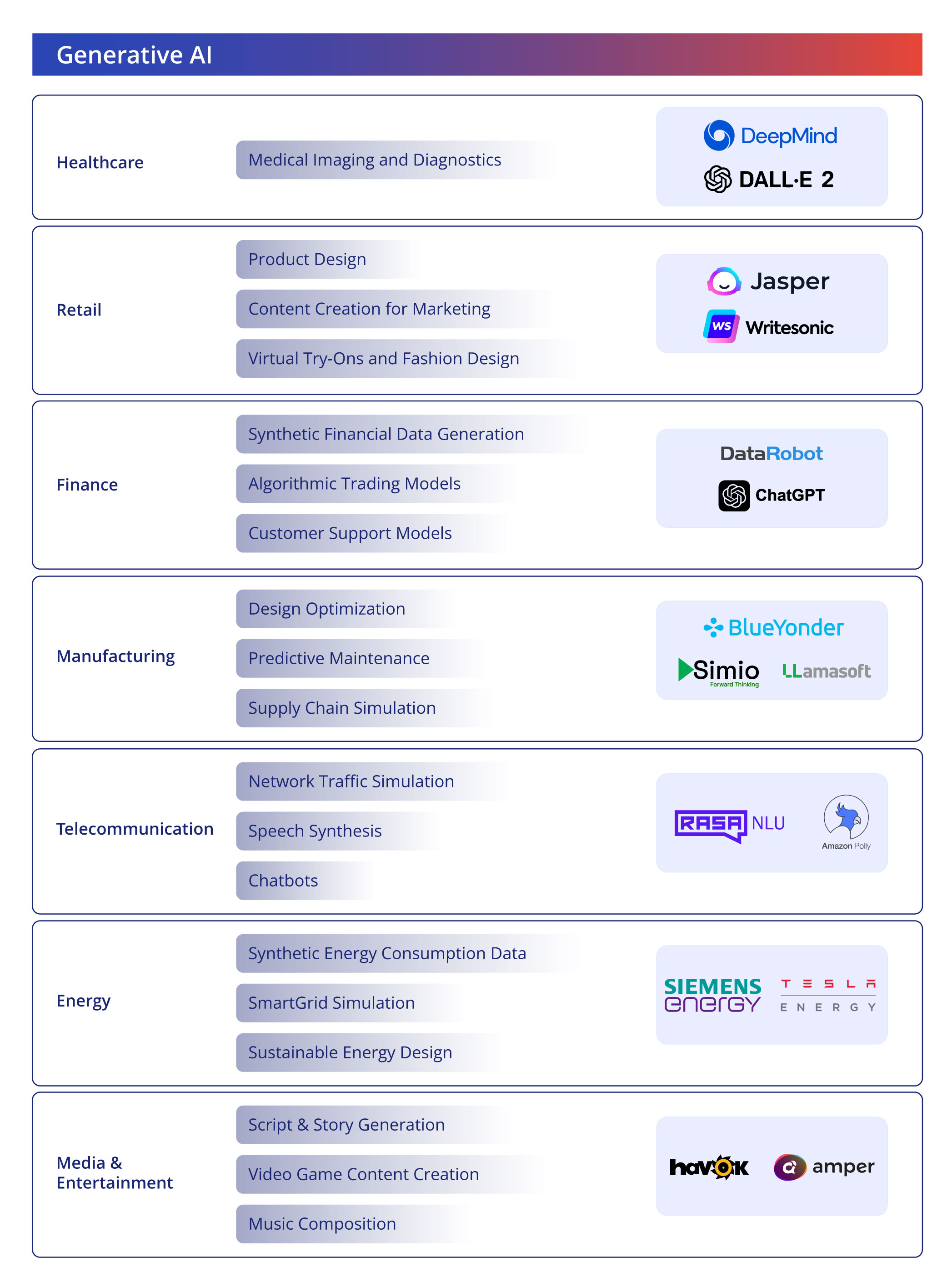
Risks to Consider
Despite the exciting possibilities, GenAI isn’t a plug-and-play solution. It demands careful planning, resources, and oversight:
- Accuracy Issues: GenAI isn’t always accurate. It can sometimes “hallucinate” and produce irrelevant or factually incorrect content.
- Ethical and Legal Concerns: Ethical challenges include the risk of bias or intellectual property issues, and needs strong governance frameworks to address these.
- Resource Demands: GenAI models are computationally intensive and require significant resources to train and deploy effectively.
Agentic AI
Things get even more interesting when we move to Agentic AI. This type of the most futuristic AI can autonomously make decisions and perform tasks with minimal human intervention.
When to Use Agentic AI
Agentic AI is ideal for complex, multi-stage decision-making scenarios, like optimizing supply chains or overseeing large software development projects:
- Autonomous Systems: Agentic AI powers drones for infrastructure inspections or robots handling warehouse tasks, reducing human intervention and increasing efficiency.
- Multi-Step Decision-Making: Agentic AI tools, like Capten.ai, are perfect for tasks that require continuous decision-making, such as optimizing logistics or refining a software codebase.
- Adaptive Systems: Agentic AI thrives in fast-changing or high-uncertainty environments, learning on the fly and adapting to new situations or data.
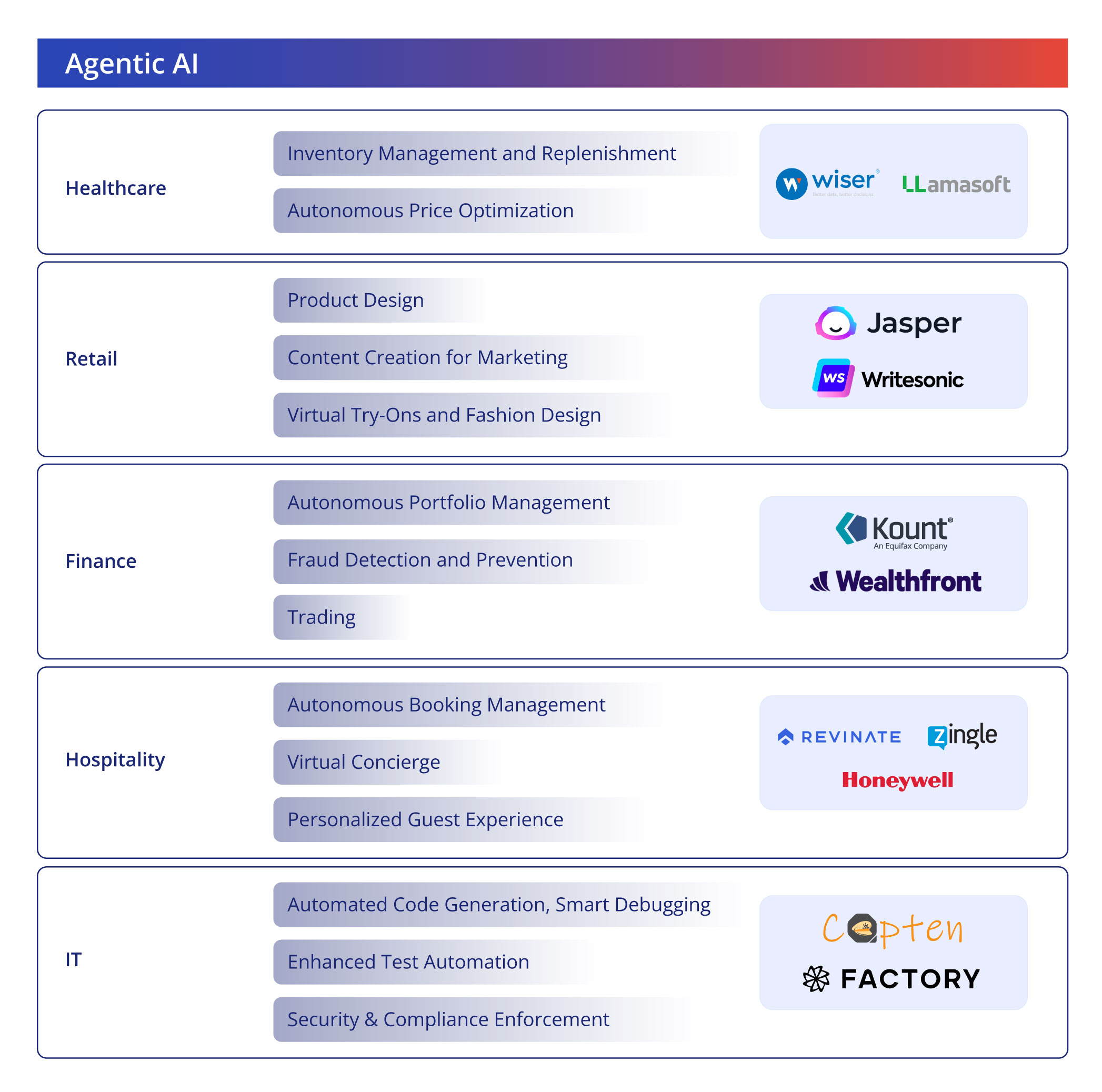
Risks to Consider
Before diving into Agentic AI, it's crucial to consider the significant investments in infrastructure and talent required. As the most advanced form of AI, it demands robust systems for successful deployment:
- Complexity of Implementation: These systems are resource-intensive and require high integration with existing processes.
- Dependence on Real-Time Data: Agentic AI relies heavily on continuous, accurate data for effective decision-making.
The AI Checklist: Which AI to Use
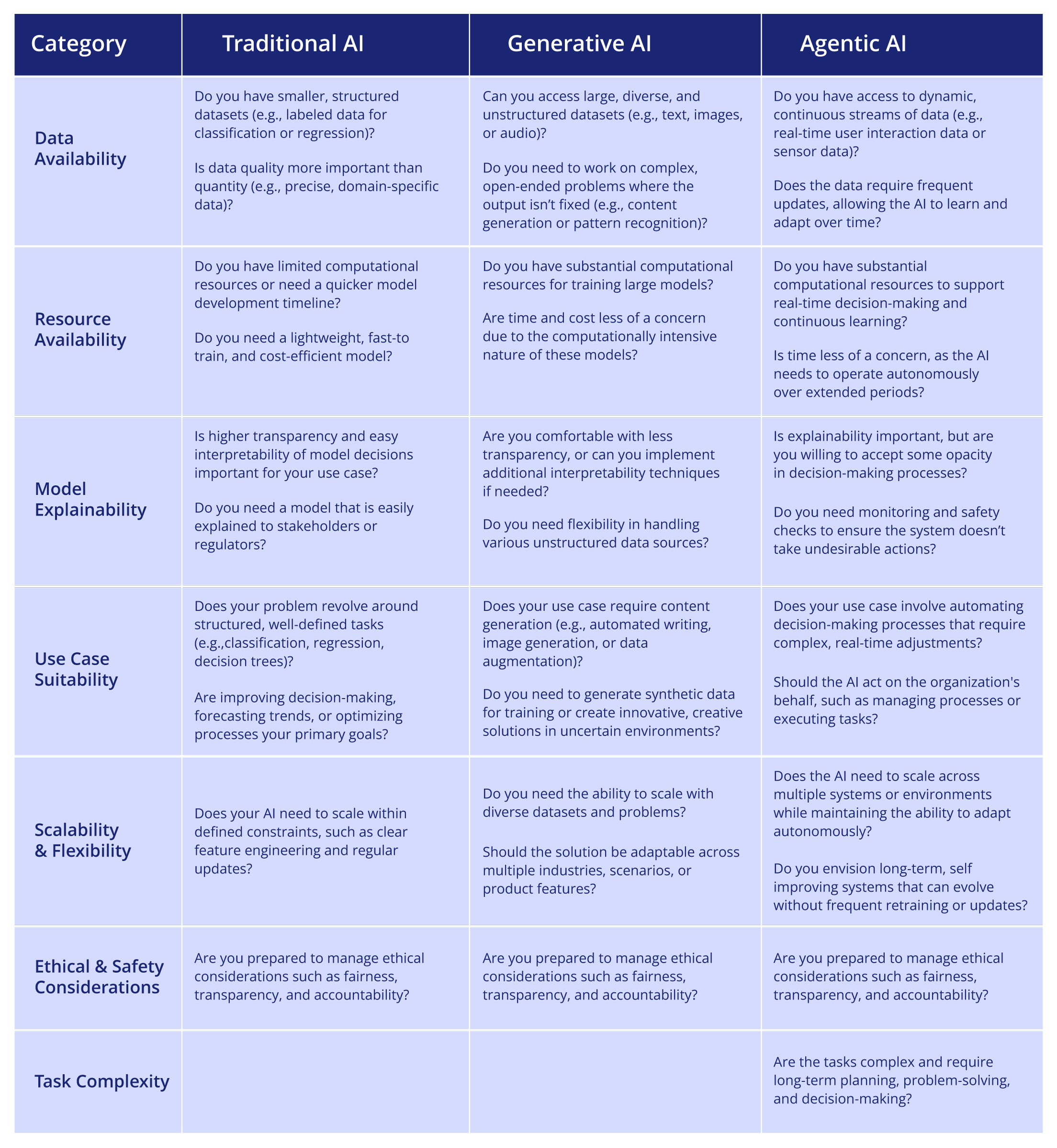
When AI is Not the Answer
Now, let’s address an important point: AI is not always the answer. Before jumping into AI, you must assess if it’s necessary or the most effective solution. For some problems, simpler technologies, such as automation or basic analytics tools, might suffice. Here are scenarios where AI may not add value:
- Simplicity is Key: AI may not be needed if the task is well-defined and easily solved with existing tools. For example, a small business using a chatbot for customer service might not need AI if a simple FAQ page or scripted responses would do the trick.
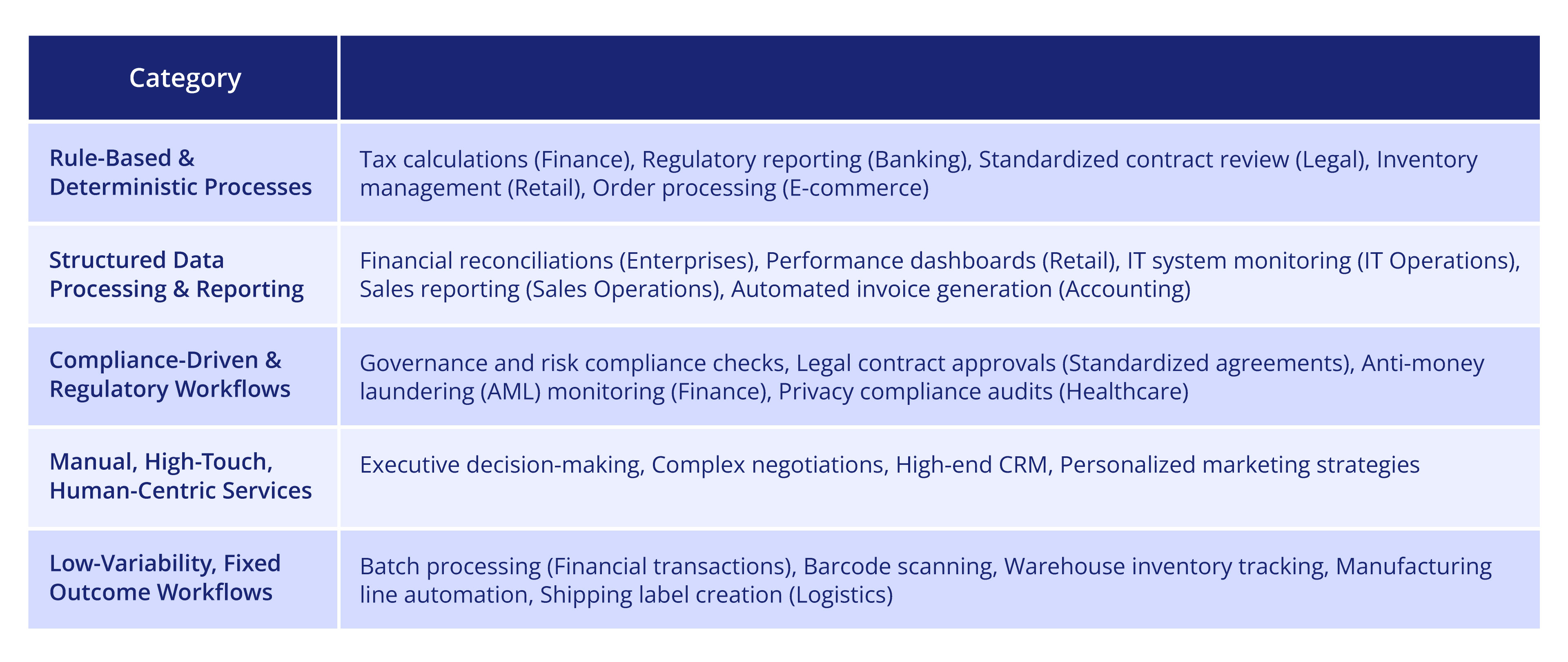
- Data Issues: AI thrives on clean, structured data. If your data isn’t ready, implementing AI will be costly and ineffective.
- Cost-Benefit Concerns: Sometimes, the costs of implementing AI far outweigh the potential benefits. If AI doesn’t offer a clear ROI, it's better to explore other alternatives.
The AI Readiness Checklist
Before you implement AI, assessing whether your organization is ready is essential. Here’s a quick readiness checklist:
- Infrastructure: Can your systems handle the complexities of AI workflows? If not, consider digitizing your processes before jumping into AI.
- Data: Do you have clean, structured, and actionable data? Without this foundation, AI won’t be effective.
- Talent: Does your team have the expertise to implement and manage AI effectively?
By taking small steps and running experiments on a smaller scale, you can test AI’s potential in your business before fully committing.
Finding the Right AI Fit: A Decision Framework
- What problem are we solving? Understand the core challenge at hand.
- Is AI the most efficient solution? Consider if simpler tools could solve the issue.
- Which type of AI fits the problem? Determine if traditional AI, GenAI, or agentic AI is the right choice.
- Do we have the foundation to support AI? Ensure your systems, data, and team are ready.
Answering these questions gives you a clear direction on how AI fits into your business strategy.
So, to AI or Not to AI?
In conclusion, AI should be treated as a tool, not a trend. Decisions must be based on readiness, strategic alignment, and realistic expectations. Don’t adopt AI just because it’s the latest thing - adopt it when it’s truly the best solution for your business needs. So, let us leave you with this thought: ‘Are you adopting AI to solve real business problems, or are you just trying to keep up with the crowd?’ Your answer will shape the future of your AI journey.
Learn more about us: https://appstekcorp.com/ or get in touch at hello@appstekcorp.com



